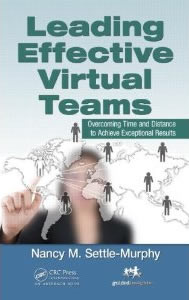When young Isaac Newton settled into a Lincolnshire garden to rest almost 400 years ago, he could not have predicted that the mere dropping of an apple from a nearby tree would give him the bolt of brilliant insight he needed to devise the formula for gravity. And nor could young Einstein have imagined that his daydream about a falling man, which distracted him from his work as a patent clerk in Bern, would lead to the creation of the theory of relativity, his masterwork.
Some believe that such unexpected insights, or defining moments, can’t be planned for and that they happen as if by magic. Others believe that there’s much we in fact can do to prepare our minds (and if we’re working as part of a team, others’ minds) to increase our capacity and ability to generate such insights.
I was inspired to write this month’s Communique after reading Chip and Dan Heath’s terrific book, The Power of Moments. They believe that all of us can be authors of our own defining moments by building them from one or more elements: elevation, pride, insight and connection. In this article, I focus on how we can create the kind of environment that leads to those aha moments of insight that deliver realizations and transformations that can otherwise be elusive, for ourselves and the teams we may be part of.
- Take the time to notice. Being mindful is a good first step, since it allows us block out the busy chatter in our brains long enough to allow us to notice and reflect. (For some, the best place to let their minds unfurl might be the shower, a solitary walk, or a quiet commute. Others prefer the conversational buzz of coffee shops to spark new thoughts.) Be curious about what you’re noticing. (“Wait, what?!” I wonder why…..” Or “What if…”) Hint: Sitting in front of a computer screen is one of the least effective ways to clear our minds to make way for new insights! That’s why I usually write these articles longhand in my notebook, staring out a window, pausing to clear my mind every now and then.
- Allocate time for team insights. Set aside time expressly for working together to brainstorm ideas, share lessons learned and otherwise cross-pollinate knowledge. Yes, you still may have to cover the “usual business” in your team meetings, but if you’re not consistently setting aside meaningful time for team learning, you may be depriving team members of an opportunity to cultivate the kind of insights that can accelerate their work and help each one grow professionally. (Plus, sharing ideas with colleagues is a lot more fun than listening to the same old status reports!)
- Let people “trip over the truth.” The Heath brothers define “tripping over the truth” as an unexpected insight, or a sudden realization that you didn’t see coming, which causes a visceral reaction, instantly changing the way you see the world. A personal example: One December night when I was six years old, my older sister told me that if I opened the door to my parents’ shower, I would find a big surprise. I’ll say! As all of our presents from “Santa” came tumbling out, Christmas suddenly lost all of its magic (and it took me a long time to believe my parents again!). To help others create shared insights at a visceral level, find ways to encourage them to “trip over the truth” by dramatizing problems. For example, to help team members gain insights as to why customers complain so loudly about your call center, assign them to answer the phones for a few days. Or if several high school students are getting consistently poor test grades, ask teachers and staff to take those same tests to discover better ways to test knowledge or perhaps, to overhaul an unworkable curriculum. Remember: Insights come not from someone giving us the answers, but from allowing us to discover the truth for ourselves.
- Stretch for self-insight. Most times, perfectly-formed insights don’t just alight in our brains, magically steering us in the right direction. Instead, we have to actively grab hold of an idea, or a partial insight, and stretch it to create a meaningful discovery that leads to some kind of action or change. For example, if I receive low ratings on a recent presentation, I may be tempted to discount them by blaming the audience for not paying attention. But if I demonstrate curiosity by digging deeper to discover what about my presentation caused people to tune out, I can apply those insights to improve my performance for next time. When sharing accomplishments (or failures), ask members to reflect on what they’ve learned and how they plan to build on that awareness in the future.
- Seek ways to encourage others to spark defining moments. Whether you’re acting as a leader, mentor, coach or a colleague, you can play an active role in boosting others’ ability to learn and grow. The Heath brothers offer a simple, powerful formula: Greater self-insight = high standards + assurance + direction + support. In a recent study of junior high-schoolers, teachers who gave feedback expressing confidence in their students’ ability to live up to the teachers’ high standards saw their students perform considerably better than those whose students received only cursory feedback. (Of course, for some it’s not enough to simply express confidence in their ability to perform at high levels. Guidance and support are often needed, too, but just enough to help them establish self-sufficiency and self-confidence for next time.)
On any given day, many of us don’t intentionally create the space or make the time for the kind of reflection and rumination that can lead to our own real aha moments. Maybe we’re too busy, or too stressed, or don’t want to slow down our momentum. Creating an environment where a group of people can come together to generate shared insights is even more challenging. But this ability is essential for teams to collaborate successfully and for each of its members to stretch and grow. Setting aside a time and place for team learning to stimulate shared insights across the team is a great first step.
Links
Top 25 Employee Appreciation Gift Ideas From The Pros from fitsmallbusiness.com
Great Gifts Everyone on the Team Will Appreciate Now and Later – past Communique
How Mindfulness Keeps You Present, and Why It Matters – past Communique
Top 10 Tips for Leading Great Lessons Learned Reviews in a Virtual World – past Communique
Wait, What?! and Four Other Questions That Expand Thinking and Spark Conversation – past Communique
122 Tips for Leading Amazingly Productive Virtual Teams – tips guide from Guided Insights, available for ordering as a PDF – customization and volume discounts are available
The Power of Moments by Chip and Dan Heath
Heath Brothers website – books, blogs and resources




